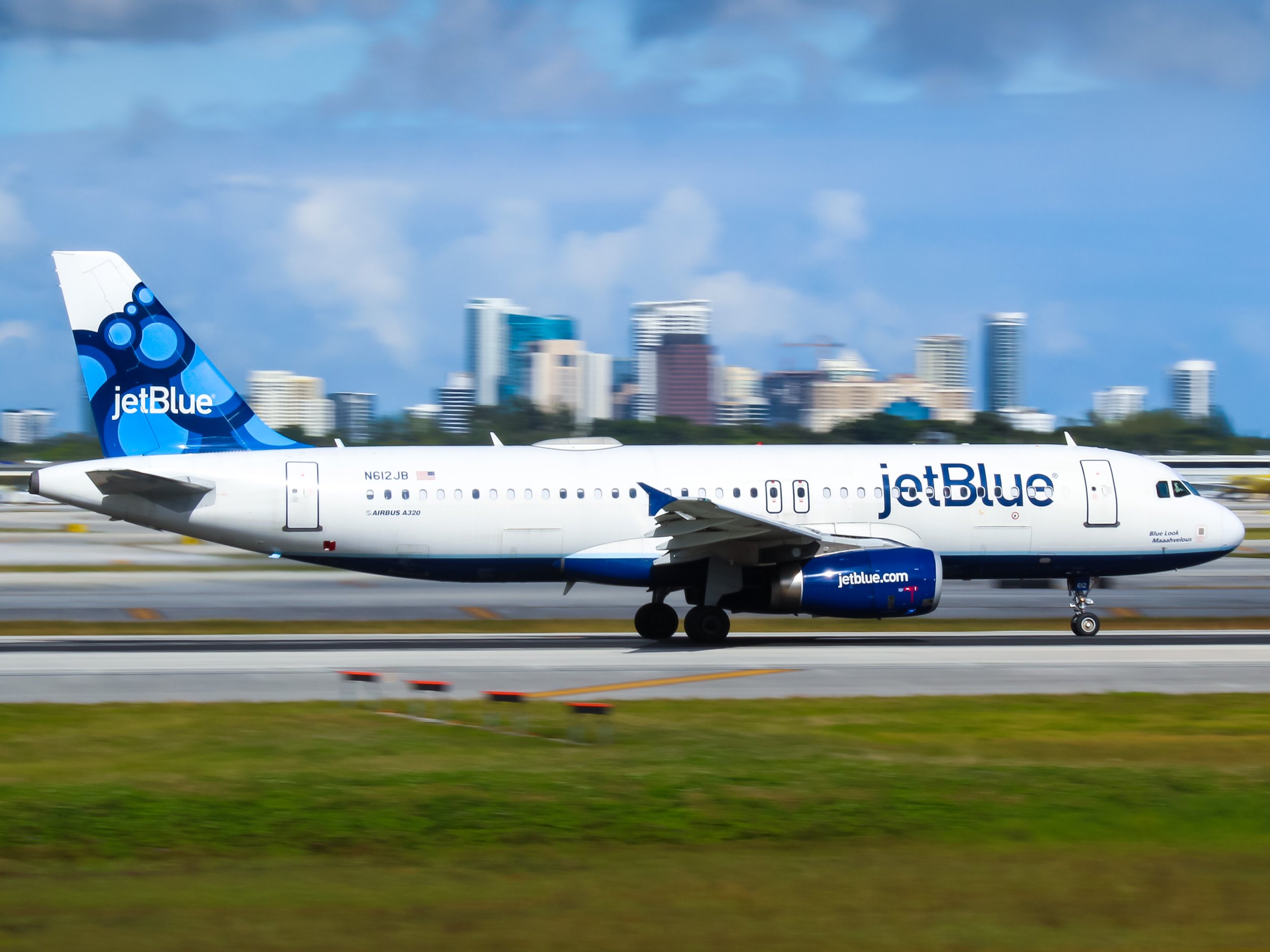JetBlue and United Airlines add oat milk creamer to in-flight menus as demand for plant milk soars
Many customers are continuing to choose oat milk instead of cow’s milk in hot drinks for taste, ethical, or health reasons.
Credit: JetBlue
JetBlue has become the latest airline to add plant-based creamer to its in-flight beverage menu.
Airlines in the past have typically not catered well for those that avoid cow’s milk when it comes to hot drinks, meaning a black coffee or tea without milk was often the norm.
However, the last few years has seen a huge rise in popularity for alternatives to cow’s milk, with the likes of oat milk and almond milk becoming mainstream choices for hot and cold drinks.
This has led to coffee houses and eateries adding more and more dairy-free choices to their menus, and now the demand has finally reached in-flight menus too.
JetBlue has announced that Lakeland Dairies’ Oat Milk in a Stick creamer will be available on its new fall menus.
Credit: Lakeland Dairies
The news follows a similar announcement by United Airlines who also added oat milk creamer to its in-flight menu just last month.
The two airlines are following the trend set by Delta Air Lines and Alaska Airlines, who both became the first major US airlines to widely offer oat milk options last year.
That means that four major US airlines have added an oat milk option within the last year, showing that the demand for plant milks is continuing to grow.
Plant milks have become increasingly popular with consumers, particular in coffee chains where the likes of Starbucks offer soy milk, coconut milk, almond milk, and oat milk. Peet’s Coffee, which has over 300 locations in the US, recently revealed that more than 34 percent of the total milk used at Peet's is non-dairy.
Why switch dairy milk for oat milk?
Taste plays a big role in a customer’s decision - and oat milk has become well-known for its subtle, creamy taste in hot drinks. But choosing plant milks instead of cow’s milk also has big benefits to health, the environment, and to animals.
Animal advocates say that the dairy industry is a product of cruelty, in which female cows are repeatedly impregnated to continuously produce milk. Within hours of each birth, the newborn calf will typically be removed from their mother so that the milk can be taken and sold to humans instead. In the US alone, estimates show there are nearly 10 million dairy cows, with the majority kept in large-scale “zero-grazing” facilities.
From an environmental perspective, the Food and Agricultural Organization (FAO) estimates that 14.5 percent of all human-caused greenhouse gas emissions are due to livestock farming. These emissions are largely carbon dioxide and methane, which are two of the largest contributors to global warming. Within this statistic, cattle - farmed to produce beef and dairy products - are responsible for 65 percent of emissions.
This has led to the dairy industry facing increasing pressure over its high environmental impact, with the production of dairy milk resulting in more than double the emissions and requiring considerably more land and water than any plant-based milk.
Choosing a plant-based lifestyle is one of the most impactful choices you can make for animals, the environment, and your own well-being. By going plant-based for 30 days (and maybe beyond), you'll experience firsthand the incredible benefits of this compassionate choice. Take our 30-Day Plant Power Challenge here.
We Have A Favor To Ask…
Species Unite amplifies well-researched solutions to some of the most abusive animal industries operating today.
At this crucial moment, with worldwide momentum for change building, it’s vital we share these animal-free solutions with the world - and we need your help.
We’re a nonprofit, and so to keep sharing these solutions, we’re relying on you - with your support, we can continue our essential work in growing a powerful community of animal advocates this year.






